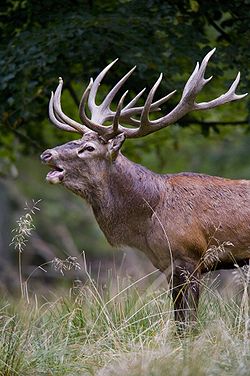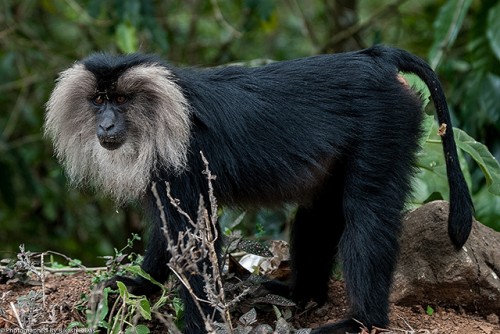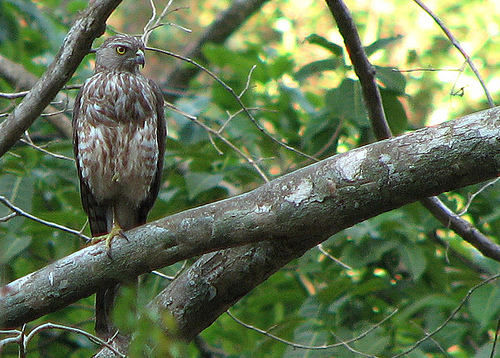 Just days after the Supreme Court banned tiger tourism in all core areas of tiger reserves, the Jammu & Kashmir government too has taken a strict stance to conserve the Kashmir Stag by banning tourism inside the Dachigam Wildlife Sanctuary.
Just days after the Supreme Court banned tiger tourism in all core areas of tiger reserves, the Jammu & Kashmir government too has taken a strict stance to conserve the Kashmir Stag by banning tourism inside the Dachigam Wildlife Sanctuary.
The park has been closed for public from the beginning of this month and will remain closed especially now when it is the breeding season of the stag more popularly known as the Hangul.
The park officials say that the decision has been taken because of the rising population and the constant onslaught of tourists everyday, disturbing the peace of the sanctuary. On an average 1500 people visit the Sanctuary everyday and officials believe the hanguls are constantly disturbed by the noise of the jeeps and the visitors.
Hangul is the only species of red deer found in India and in the Dachigam Sanctuary the population of this rare deer is estimated to be 200.
According to Wildlife Warden Mohammad Sadiq Mir, “Heavy rush of tourists disturbed the ecological balance and there was apprehension that animals might run away from the park if human interference continued.”
“There are nearly 200 Kashmir stag in the sanctuary and this is the fawning period for them. The decision to ban the entry of general public was taken on the instructions of chief wildlife warden A K Singh,” he added.
Till last year only a few visitors were allowed inside the park and they too had to first take permission from the chief wildlife warden. But from this year the rules were a bit relaxed to attract tourists. According to a senior official, the move succeeded in garnering interest in the park, but resulted in a chaotic atmosphere that the animals hated.
“It isn’t permissible to drive vehicles inside the sanctuary as blowing of horns disturbs wild animals. However, for the last few months the sanctuary gave the impression of being a bus stand,” he said.
“Government had hired Jungle Lodges and Resorts, a Government of Karnataka undertaking considered to be a pioneer of ecotourism and conservation of ecology and wildlife, as consultants. However, the initiative had been opposed tooth and nail by several officers of the department,” he said.
The problem of tourists no understanding the fragility of the forests is something that is repeatedly being felt in all of India’s national parks. With the Supreme Court denying the entry of tourists in tiger reserves, it only proves that the menace humans posed as tourists are creating, is actually present.
According to Former principal chief conservator of forest and chief wildlife warden Abdul Rashid Wani, eco-tourism is not a bad thing, but it has to be done in a disciplined manner.
“But it should be restricted to staying of tourists in tents, bird watching and trekking. Then it can’t affect wild animals,” Wani said.
“Till a few decades ago, we used to organise visits of students, scientists and tourists to wildlife protected areas in the state. The government needs to rethink its decision on ecotourism in wildlife areas, and form a committee of experts to identity the modalities of starting it at the earliest.”
Humans can’t act like the planet bullies all the time. We need to learn the ways of the forest, before we enter it.
More Related Stories,
War torn Kargil now Home to Snow Leopards
Indian Army Starts the Save Hangul Campaign
Himalayan Bird to Get advanced Breeding Centre










It is encouraging to see people like you engaged in highlighting an issue like consertvation of Kashmir Red Deer or Hangul. There has been a ban on visitation of the public and the transport system they use inside Dachigam NP, but that is not enough, as the permanant irritants inside the DNP which are real hinderence to hangul come-back are very much there. Unless and unltill such irritants are not removed from the park, it is very defficult for hangul or other endangered species to make a real come-back. These irritants include: 1) Govt. Sheep Breeding Farm 2) Government Fish Hatchery 3) VVIP Guest House 4) Security forces bunkers and camps and last but not least 5) seasonal nomadic and local livestock graziers in upper reaches of DNP – hangul’s prime habitat
Thnaks.
Thanks a lot Mir for your comment. You are right. Any kind of human interference is a threat to the hanguls as they are shy animals. If the visitations have been baneed, so should be the other operations within the park. Restrictions should not stop at one level only.